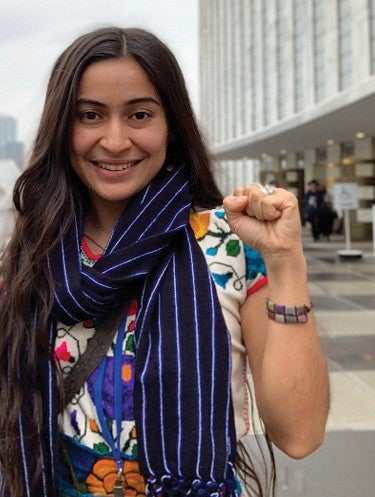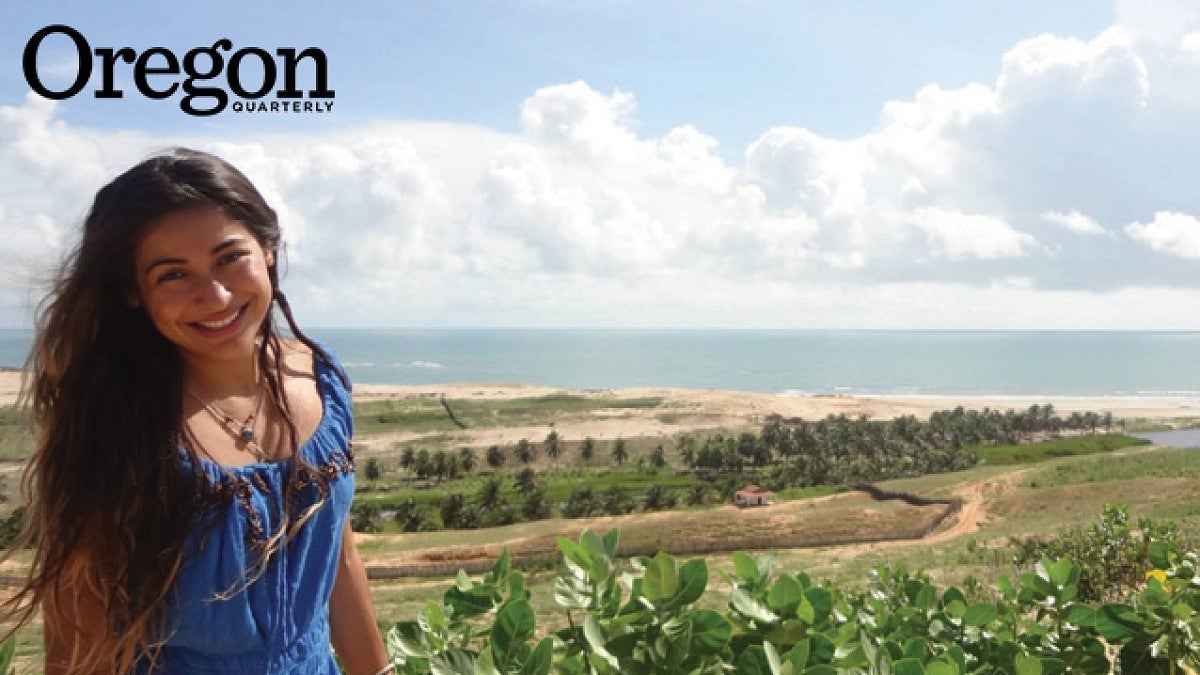Calabar, a poor, neglected neighborhood or “favela” in a city of eastern Brazil, has long been cast as a slum gripped by violence and drug traffickers. But Niria Alicia Garcia found something else entirely when she traveled there in 2013.
“There is this stereotype that ‘favelas are dangerous, favelas are where the criminals live,’” she says. “There is so much beauty that lives there—so much music, culture, camaraderie, laughter, kids playing. Yes, there’s a lot wrong, but there is much more beauty, strength, and resilience.”
As part of a study abroad program on social justice and sustainable development, Garcia examined how Afro-Brazilian women have fought for this historically marginalized neighborhood in Salvador, the capital city of the state of Bahia. This chance to do field-based research was a draw for the trip.
Her host mother and other women she met in Calabar were activists and advocates, fighting government neglect. Through interviews, observation, and existing research, Garcia examined the women’s long record of activism and their fight against systemic oppression and the history of slavery in Brazil.
She found that as Salvador’s urban development in the 1970s threatened to quash Calabar, residents organized to resist displacement. They sparked a movement that pressured the city to deliver electricity and running water to the favela.
The women of Calabar helped bring a school, library, and after-school programs to the neighborhood. They pushed for investment in youth programs to improve education and reduce unemployment.
Soon after she arrived, Garcia realized the importance of dropping preconceived ideas about her project and following the women’s lead instead.
“The moment I started listening, I realized none of the questions that I wanted to research were relevant,” she says. “You really just gotta listen and just tell the story that is there already.”
She volunteered in her host mother’s classroom, learned to dance samba, studied Portuguese, and developed lasting relationships with the women. She ultimately produced an ethnographic research paper for Latin American studies detailing how the women of Calabar took the well-being of the community into their own hands and created stability and progress.

The 2016 environmental and Latin American studies graduate says the biggest challenge of her project was securing the funding. She received a $500 grant but covered most costs herself. “It's just about [the university] making it a priority and giving time and energy to creating programs that can allow all students to pursue their own research interests,” Garcia says. “Students should be supported by the institution.”
In the last six years, the UO has made major strides in support of undergraduate research, says Josh Snodgrass, an anthropology professor who recently completed a five-year stint as associate vice provost for undergraduate research and distinguished scholarships. Among them: the launch of a program that offers up to $1,000 in support of student projects and a center that connects students with research opportunities.
“We still have more work to do,” Snodgrass says, “but we’ve seen a massive increase in attention to undergraduate research opportunities and to funding students to engage in them.”
Garcia was inspired to dedicate her career to society’s most marginalized people. Based in Oakland, she now serves as a lead organizer with Run4Salmon, working to protect waters, restore endangered salmon runs, and revitalize Indigenous lifeways. She was recently accepted into the human rights studies graduate program at Columbia University.
“The strongest people are the people who are the most left out by society, who are the most oppressed, because they understand struggle,” Garcia says. “And they are the experts on what needs to change in society—for us to live in a better way, in a more dignified way as the collective of humanity.”
–By Emily E. Smith, BA ’10 (women’s and gender studies, journalism: news-editorial), a writer and editor in Bozeman, Montana.


